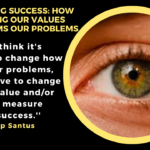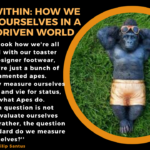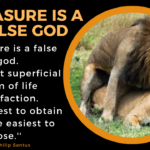THE RELATIONSHIP BETWEEN FEAR, RELIGION, AND DECEPTION
(MY QUOTE)
‘The world is crazy now, when you are afraid of life, you take to the Church.
You run to the clergies who are extremely afraid of life, and they rob you off with their cloak of lies.’ — Philip Santus.
THE MEANING:
This quotation sharply critiques the relationship between fear, religion, and deception. It suggests that in times of personal or societal uncertainty, people often turn to religious institutions. Still, these institutions and their leaders might be perpetuating a cycle of fear rather than providing true guidance or solutions. Let’s break it down:
1. “The world is crazy now”:
This opening line sets the stage, conveying a sense of global chaos, confusion, or instability. It could reflect feelings of disillusionment with modern society—whether due to political, social, or economic challenges—and how overwhelming it feels to navigate life in such a state. The word “crazy” emphasizes the unpredictability and irrationality of the current times.
2. “When you are afraid of life, you take to the Church”:
This suggests that fear drives people to seek solace or refuge in religion, particularly organized religion like the Church. In times of emotional or existential crises, people often turn to faith as a coping mechanism. However, the phrase implies that this turn to religion is driven more by fear than by genuine belief or spiritual discovery. It points to a reactive, rather than proactive, embrace of religion.
3. “You run to the clergies who are extremely afraid of life”:
This line challenges the notion that religious leaders are secure, fearless, or wise. Instead, they are just as fearful of life’s uncertainties as those who seek their guidance. It raises the idea that many religious leaders, despite their position of spiritual authority, may lack real answers or solutions, and instead, may be dealing with their own fears and insecurities.
4. “And they rob you off with their cloak of lies”:
This is the most striking accusation in the quotation, suggesting that the clergy deceive people, using religious authority (“cloak”) to conceal falsehoods. The metaphor of the “cloak” implies that the lies are hidden under the guise of something virtuous or sacred. The use of “rob” suggests that this is an active, intentional exploitation of people’s fears, where followers are misled or manipulated, perhaps through false promises or the abuse of power.
Overall Meaning:
The quote seems to critique both the fearful state of society and how organized religion, particularly its leaders, may exploit that fear for control or personal gain. It portrays a cycle where fear drives people to religion, but instead of finding real comfort or truth, they encounter a clergy that is itself fearful and deceptive. The “cloak of lies” suggests that religion, in this view, provides a comforting but false cover that hides the reality of life’s challenges rather than addressing them.
This is a powerful statement about disillusionment with institutionalized religion and its potential to perpetuate fear and falsehood rather than offering genuine spiritual or emotional support. It encourages critical thinking about where we seek guidance and how easily fear can be manipulated.
Suggested Further Reading:
- “The Power of Myth” by Joseph Campbell – Explores the role of religion and myths in shaping human consciousness and addresses how fear can drive people toward religious beliefs.
- “The God Delusion” by Richard Dawkins – This book offers a critique of organized religion and its influence, questioning the relationship between faith, fear, and authority.
. “Escape from Freedom” by Erich Fromm – Discusses how individuals seek refuge in authoritarian systems, including religion, to escape the existential fear of freedom and life’s uncertainties.
. “The Denial of Death” by Ernest Becker – Explores the idea that much of human behavior, including the turn to religion, is motivated by fear of death and the unknown.
These resources can help deepen your understanding of the relationship between fear, religion, and human behavior, which my quote eloquently addresses.






